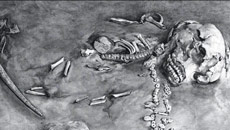In what could be one of the reasons why women shy away from joining science stream, a survey reveals that many young scientists have suffered sexual harassment or sexual assault while at work in the field.
Nearly 64 percent of the survey respondents said they had experienced sexual harassment that includes inappropriate sexual remarks, comments about physical beauty or jokes about cognitive sex differences.
Over 20 percent reported they had been the victims of sexual assault - unwanted physical contact of a sexual nature, including touching, physical threats, or rape.
"Our main findings that women trainees were disproportionately targeted for abuse and felt they had few avenues to report or resolve these problems suggest that at least some field sites are not safe, nor inclusive," said lead researcher and anthropology professor Kate Clancy from University of Illinois.
"We worry this is at least one mechanism driving women from science," Clancy added.
Undergraduate students, graduate students and post-doctoral researchers - described as trainees - were the most victimised lot.
"Over 90 percent of women and 70 percent of men were trainees or employees at the time that they were targeted," researchers wrote.
Five of the trainees who reported harassment were in high school at the time of the incident.
The survey was done on 142 men and 516 women with experience in field studies in anthropology, archaeology, geology and other scientific disciplines.
To reach this conclusion, researchers recruited respondents through social media outlets and on web sites serving scientific disciplines that involve field research.
The respondents filled out an online survey asking them about their educational and professional status, gender, age, and experiences during field studies.
Female researchers reported most often that they were the targets of researchers who were superior to them in rank.
"This suggests that women may be even more burdened by the phenomenon of workplace sexual aggression," added co-author Julienne Rutherford from University of Illinois at Chicago.
Males were most often harassed or abused by their peers, concluded the survey that appeared in the journal PLOS ONE.





